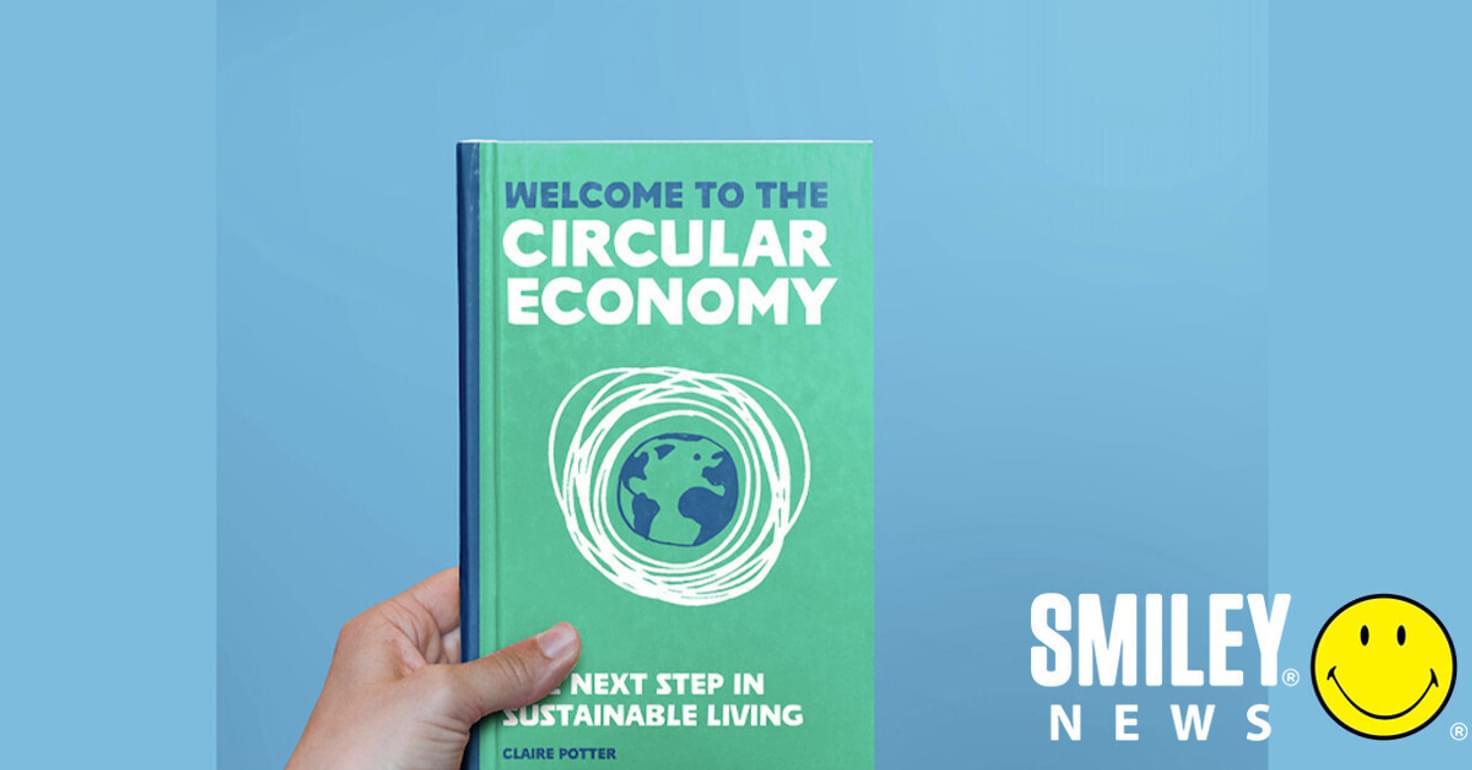
Words by Smiley Team
If you hear the words “circular economy”, what comes to mind?
Do you go blank? It’s a phrase often used by businesses, and perhaps one you’re not clued up on. But it’s an important concept and one Claire Potter wants educate people about – without any jargon.
Claire is a designer and teacher at the University of Sussex. In her spare time, she volunteers for the marine charity, Surfers Against Sewage. Her debut book, Welcome To The Circular Economy, out on 9 September, is a jargon-free book aimed at anybody who feels passionate about taking the next step in sustainable living.
It's not for business managers, policy makers or politicians, it's for all of us.
[Read More: How this airbubble playground is brilliant for kids]
When Claire brings up the circular economy, people often look at her blankly. “But when you explain it simply, it makes a lot of sense,” she says.
“The way I describe it is, the way that humanity works is in a linear system,” explains Claire. “We take things out of the ground, we make things, distribute them, turn them into something else. Then, we use or consume it, and at the end of its life – which might be short – it generally ends up in landfill. A small amount might be circular.
“The way nature works, however, is circular. Nothing has an end point. Nature doesn’t have a landfill process – everything is a byproduct of one system. It becomes obvious that we are the only species on the entire planet that works in a linear way.”
[Read More: The vegan wine brand removing plastic from our oceans]
So, what should we do? “We should mimic, as closely as possible, the way that nature works,” says Claire. “In loops and circles, where everything becomes the use of someone else.”
This is the basis of Claire’s book.
She was contacted by a publisher to write it after she did a magazine interview about her research around plastics. As a teacher at university, she’s hugely passionate about spreading the concept of the circular economy. It was the perfect match.
In the book, Claire explores how we can live our lives beyond “sustainability”, dedicating a chapter to an ‘R’ – by that, we mean the Rs you may have heard of: reduce, reuse recycle – plus some more: repair, refill, retail, rent, redirect, resource, regulate.
“There are all these others Rs – other than the ones we’re taught at school – that slot in between and make that linear life of a product last much longer and be more circular,” explains Claire.
Rent, for example, is an important one. If you don’t need to buy something, why are you keeping it, storing it and maintaining it, she asks. You could share that item through a rental scheme, and therefore only one thing needs to exists, while 10 people could get the benefit.
Claire visualises how you may be able to fit into the circular economy with a spider’s web – “For each of the Rs, which can you engage the most with?” she says, “which do you find more interesting? Everyone’s web will look different. It’s not a one size fits all – that’s what is important. What’s difficult for one person is different to someone else – and that’s fine. We are all doing our bit.”
Claire is insistent that no one should feel guilty if they aren’t able to do everything they want to do to live a sustainable life – not everyone can do all the Rs at once. For some, budgeting may come into it, as many plastic-free options are more expensive. In fact, one of Claire’s biggest bugbears with the ability to live this way is the cost. “Do as much as you can, but don’t stress if you can’t do it all,” she says.
After reading the book, Claire wants people to come away thinking that they're probably doing a lot more than they realise for the planet. “I want people to think that the changes they could make are within the possibilities of what they can do,” she says. “I don’t want them to be overwhelmed, but to recognise the life they are living – and seeing what they can do beyond that.
“Celebrate what you’re doing already,” she adds. “And then build on it.”
And if there’s one habit people could try to adopt, it’s to slow down a little and be more mindful of the decisions you make, she says. This can be tricky, because many of us are so time-poor. But if you take a bit of time and make small, incremental decisions – you can make a big difference.
You can pre-order Claire’s book – Welcome To The Circular Economy – on Amazon or from independent bookstores.